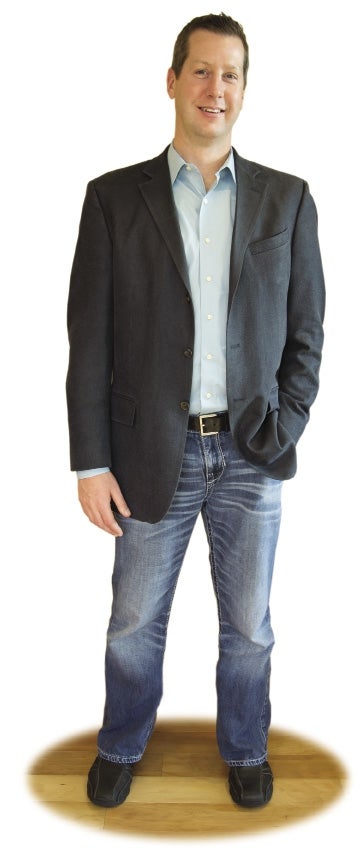
Q&A with Tyson Nargassans, President & CEO, Saylent Technologies
 Tyson Nargassans, president and CEO, Saylent Technologies, Franklin
RESIDENCE: Medway
EDUCATION: Bachelor's degree, Skidmore College
Tyson Nargassans, president and CEO, Saylent Technologies, Franklin
RESIDENCE: Medway
EDUCATION: Bachelor's degree, Skidmore College

Business thrives on data. But it needs special software to help go behind the data to react to changing customer demand and stay competitive. That's where Franklin-based Saylent Technologies comes in for financial institutions, as a provider of data analytics software and services. This year, Saylent placed 178th on Deloitte's Technology Fast 500, which ranks the fastest-growing companies in technology, media, telecommunications, life sciences and clean technology based on revenue growth over the previous five years. Saylent, under its founder, Tyson Nargassans, grew 593 percent from 2009 to 2013.
In this complex world of payment processing, where does Saylent fit in? Where's the key niche?
The niche is really the focus on providing analytics against the issuers and financial community around payments. My experience here has been (that) banks don't really utilize a lot of the analytics that they have available to them. There (are) tons of data, and there was this gap in how we serve the market and how they use it. So we spend a lot of time trying to find ways to improve the profitability and product innovation of financial institutions. It's an underserved market as you think about the end delivery.
Can you give me an example of how one of your products has worked?
One of our products, Account360, really focuses on the customer relationship as a whole at a financial institution, and the plethora of data they have. They're struck a little bit with the opportunity of “What am I supposed to do with that data and how can I apply that data to meaningful product sets?” What we've done in a lot of instances is work on their customer base, how their customer base is performing, what the financial behaviors are of their customers and instead of just leaving them there, we've taken that insight that we've gained and helped them apply it to a product.
You have the perspective of having worked in both technology and financial services. How unique a perspective is that for a CEO to have been on both sides of the transaction?
I think there are other people who have done what I've done. It's interesting in that you see in one side of it a technology industry that's very innovative, very nimble, trying to adopt the latest and greatest of technologies. On the other side, in the financial world, you realize the importance of data security when you think about all the breaches you've seen. The integrity and the security of the data become very important.
How do technology companies such as yours stay up on the latest data security threats?
We wake up every day thinking about it. You try and hire great people who have great experiences. We just brought an interesting resource with great security depth. Certainly talent is important. In addition to that, you have to stay up on the threats. You constantly have to be evolving your approach, thinking about things differently, evaluating.
Are the threats and attacks becoming increasingly creative?
Very much so. I've talked to a number of people in the industry. Some of the thieves and the hackers of the world (are) sophisticated enough in their methods not only to get your data, they're also sophisticated enough in how to sell your data. They realize that every day (it) sits out there, it's less valuable to the person who wants to buy it. There are these “black marketplaces” that are constantly popping up and down.
Any predictions as to how soon we'll be a cashless society? Or will we at all?
Ahhh, the million-dollar debate. We've been talking about a cashless society for 15 years. Cash is always going to exist, or at least will exist for the foreseeable future. What you're going to see is there are different ways to erode the use of cash. There are some businesses where cash makes a ton of sense. Until we can get the wallet outside of your back pocket and your purse, when you can get that stuff (electronically), then you have a much greater opportunity to be a cashless society. But that's not in the short-term roadmap for the country.
(Editor's note: This interview was conducted and edited for length.)
Video









0 Comments